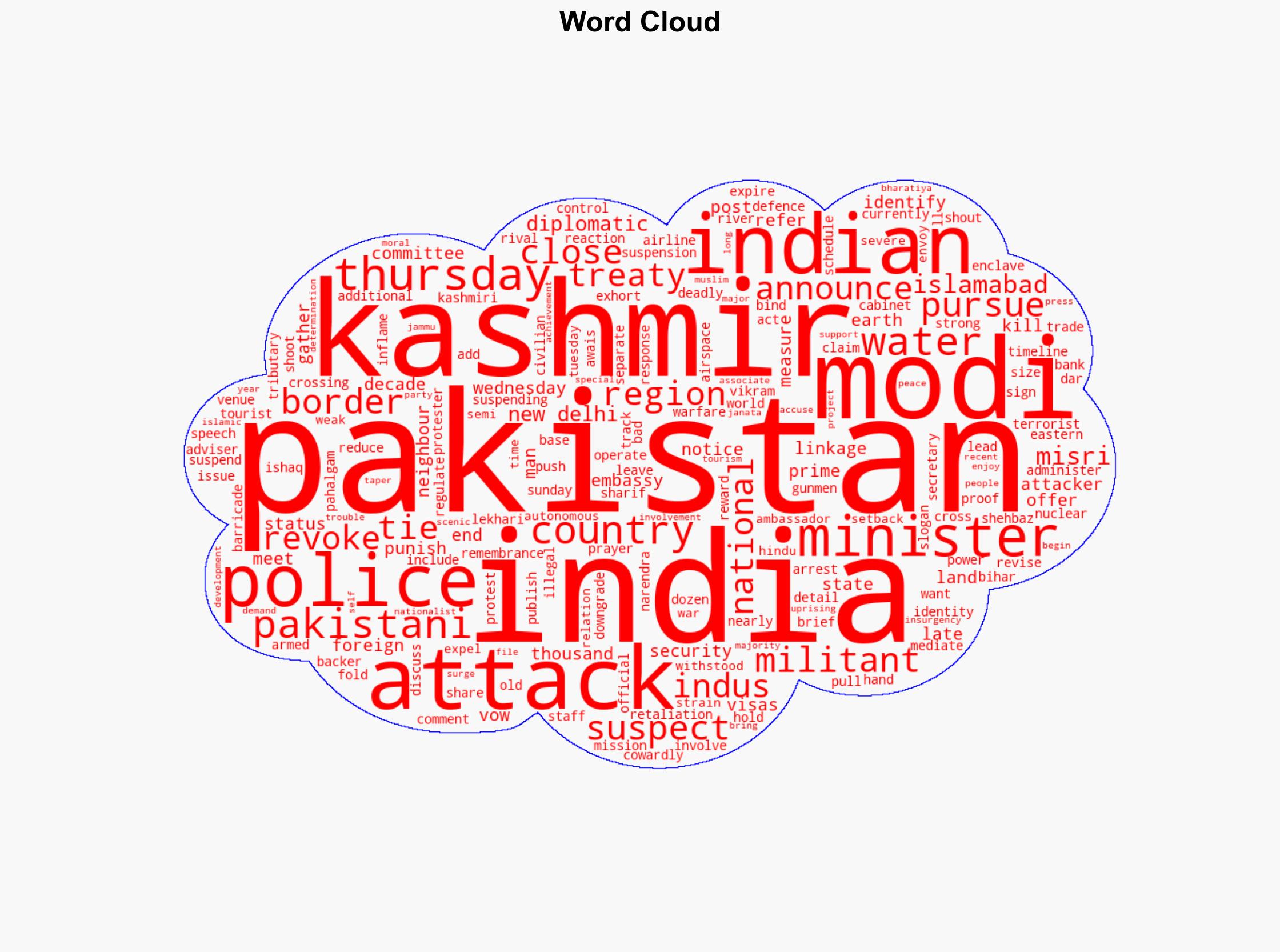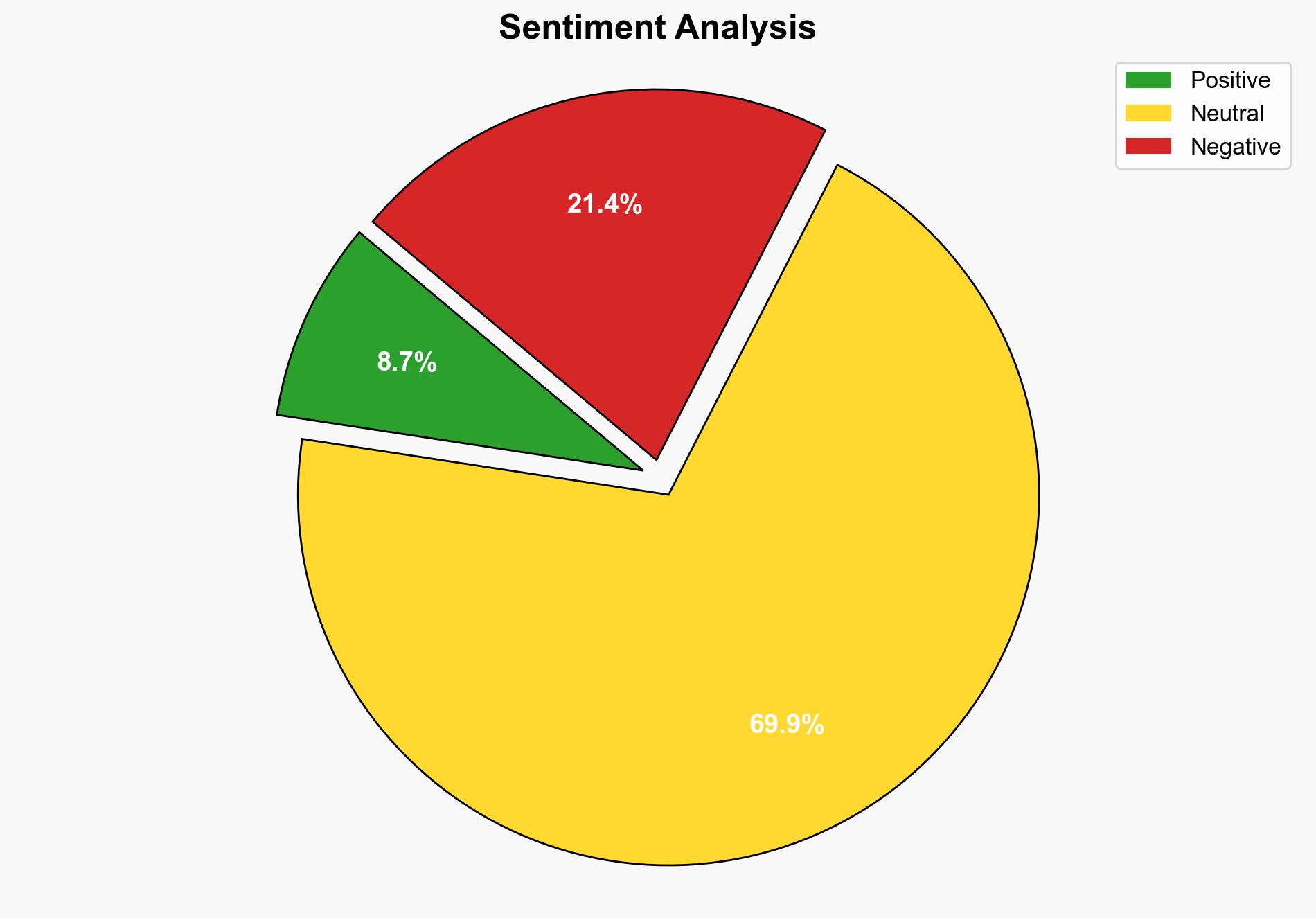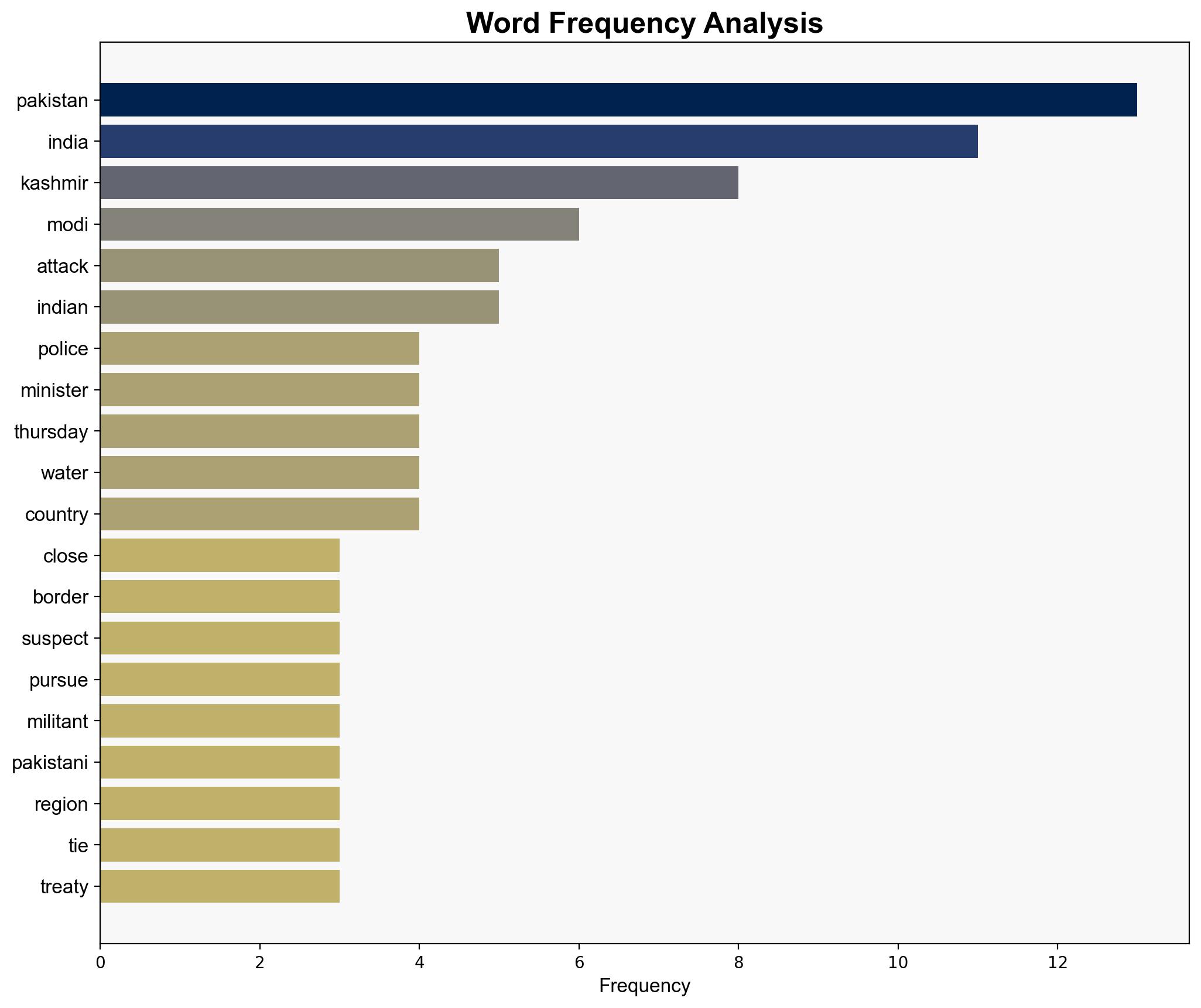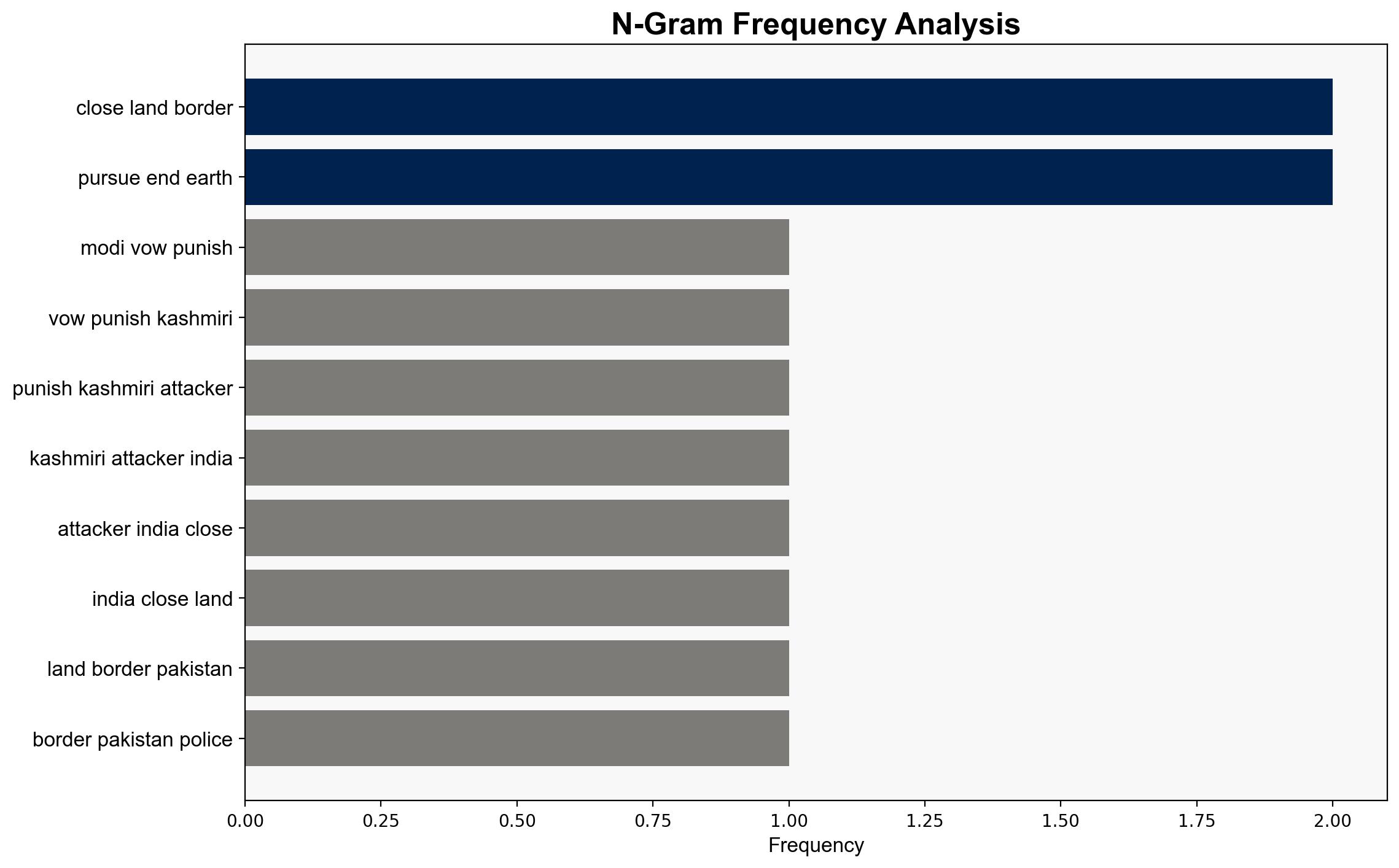Modi vows to punish Kashmiri attackers as India closes land border with Pakistan – CBC News
Published on: 2025-04-24
Intelligence Report: Modi vows to punish Kashmiri attackers as India closes land border with Pakistan – CBC News
1. BLUF (Bottom Line Up Front)
The recent escalation between India and Pakistan following a militant attack in Kashmir has led to heightened tensions, with India closing its land border with Pakistan and suspending the Indus Water Treaty. This report evaluates the strategic implications of these developments and recommends measures to manage potential risks and leverage diplomatic opportunities.
2. Detailed Analysis
The following structured analytic techniques have been applied to ensure methodological consistency:
SWOT Analysis
Strengths: India’s decisive response aims to deter future attacks and assert its stance on national security.
Weaknesses: Potential for increased regional instability and economic repercussions due to disrupted trade and diplomatic ties.
Opportunities: Strengthening alliances with other regional powers and leveraging international support against terrorism.
Threats: Risk of retaliatory actions by Pakistan and escalation into broader conflict.
Cross-Impact Matrix
The closure of the land border and suspension of the water treaty could exacerbate resource competition and diplomatic tensions, potentially leading to increased military posturing. These actions may also influence regional alliances and affect global perceptions of stability in South Asia.
Scenario Generation
Best Case: Diplomatic engagement leads to de-escalation and renewed dialogue on security cooperation.
Worst Case: Escalation into military conflict, disrupting regional stability and economic growth.
Most Likely: Prolonged diplomatic standoff with intermittent skirmishes and continued international mediation efforts.
3. Implications and Strategic Risks
The closure of the border and suspension of the treaty highlight vulnerabilities in regional water security and trade dependencies. The potential for cyber threats and misinformation campaigns could further destabilize the situation. Additionally, the domestic political landscape in both countries may harden, reducing flexibility for diplomatic solutions.
4. Recommendations and Outlook
- Engage in multilateral diplomacy to facilitate dialogue and reduce tensions.
- Enhance cybersecurity measures to protect against potential retaliatory cyber attacks.
- Monitor regional military movements to anticipate and mitigate escalation risks.
- Scenario-based projections suggest that maintaining open communication channels is crucial to avoid worst-case outcomes.
5. Key Individuals and Entities
Narendra Modi, Awais Leghari, Vikram Misri, Shehbaz Sharif, Ishaq Dar
6. Thematic Tags
(‘national security threats, cybersecurity, counter-terrorism, regional focus’, ‘cybersecurity’, ‘counter-terrorism’, ‘regional focus’)





